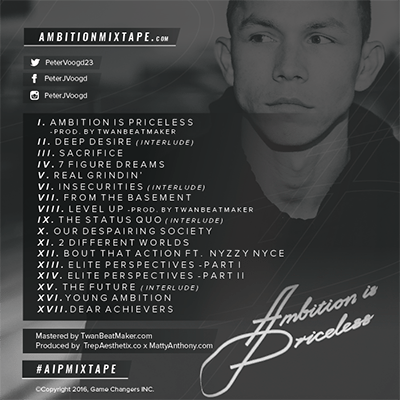Success Advice
The 5 Stern Truths That Must Be Understood about Motivating Millennials

Millennials are poised to drive the future of business and entrepreneurship. The 53.5 million-strong Millennial workforce has risen rapidly and surpassed Generation X to represent the largest share of the American workforce.
Millennials offer truly unique skills – they have fresh and innovative ideas, are extremely adaptable and tech-savvy making them quick learners, and are highly educated. Clear contrasts exist between prior generations and Millennials, and the most successful businesses know that the future of their business rests in the hands of Millennials who are reinventing what it means for a business to be successful. So how do you motivate a generation that’s been labeled lazy and entitled? It starts with a deep understanding of what drives them, and actually taking the time to figure out what they are passionate about.
I’ve been fortunate enough to hire and train thousands of young entrepreneurs and Millennials from all different walks of life, and I’ve paid very close attention to what motivates and drives them. When you hit their hot buttons, believe in them, and respect their autonomy, they will not only shock you but they will take your business or platform to a whole new level.
They’ve been misunderstood for years, but if you can provide them with the right tools and opportunities, they will go the extra mile for you because you will have provided them something they can believe in and get excited about. They want to do good work and make a difference, but will rebel if you try and control them.
Here are 5 stern truths that must be understood about motivating Millennials:
1. Stay new and relevant
How relevant are you when it comes to marketing your brand, or motivating your team? Are you bringing current and cutting edge research and tools? If you’re still trying to recruit people from Craigslist vs. LinkedIn you’re forgetting what year it is. Millennials want to express their creative genius, share their ideas, and have the latest technology at their disposal.
Google recently was swamped by a record 75,000 applications for 6,000 openings. That’s more than twice the 35,000 applications Harvard received this past year (also a record). Why? Because Google is relevant, encourages networking with other brilliant minds, has built an amazing culture, and values innovation.
Is your company relevant to the new economy? Is your company innovative? Is it considered a trendsetter or a trend follower? Do you take ideas internally from those you work with? Do you attract top talent because of your innovative workplace? If your answer is “no” to any of these questions, you are likely on your way to mediocrity, or even worse, extinction.
“The way customers relate to brands and how profit is generated has changed so dramatically almost every professional is being challenged to reconsider what they do in order to stay relevant.” – Simon Mainwaring
2. Get controversial
Controversy is a necessary evil of some of the best things in life: art, change, creativity, literature, relationships, and innovation- just to name a few. If you want to attract the strongest of minds you can’t be afraid to get controversial. Too many people are scared to get controversial, because of the fear of others’ reactions. That fear is warrantless.
Controversy is not only healthy but it sparks intelligent conversation and innovation. The only way to avoid all controversy would be to consider nothing you believe important enough to articulate and defend, and no truth too costly to compromise. There are already enough people inspiring with fluff and false hope. I’ve listened to thousands of audios, videos, speeches, and invested a lot of money into numerous seminars.
A very small percent of them actually give value that can be sustained past the current moment. It’s not that difficult to inspire, and anyone can share a quote, take a line from a book, or promote a video, but actually understanding people and getting them to act is a whole different story. That’s what controversy does and I fully believe opening up to different ways of thinking increases one’s wisdom and opens new doors.
3. Always be authentic & genuine
Is what you’re promoting in your marketing material congruent to your hiring interview and the actual opportunity you are promoting? One of the biggest reasons for bad retention is the expectations of the team member not being met or something being falsely promoted or exaggerated.
Treat Millennials like investors in your business – you must be as transparent and honest as possible throughout the entire recruiting and hiring process. Leaders lose trust and respect quickly when they aren’t doing what they promote. If you promote being on time but show up late, credibility is lost. Millennials have acute “Bull Sh*t meters.”
Inauthenticity doesn’t set well with Millennials, and if you aren’t living fully authentically don’t expect an ounce of respect from any of them. While many Millennials will likely not be able to describe or put into words what makes a company or brand truly authentic, they know it when they see it and often have a visceral reaction when something doesn’t feel authentic and genuine.
4. Be different and dynamic
You want people to know with certainty how it’s going to be when they join your movement. This is only accomplished when you create a polarizing point of view that might offend others, but connects at a deep level with your target audience. This will separate your market into believers and non-believers.
It’s always better to be loved / hated than to be tolerated. It becomes easier to make this happen when you give up the need to be liked by everybody. Imperative to this point is how you communicate this message. Never under any circumstance be boring. It doesn’t matter what you say, or how powerful your content is if you’re boring. How you say something is just as important as what you’re saying.
While you must be different and dynamic, you must be honest! This is non-negotiable. Millennials have pretty much seen and heard every gimmick in the book. The more transparent and honest you can be with them while communicating your message, the more loyal they will be to you.
5. Make it about them
Millennials can tell if you have their best interest in mind. A lot of companies churn and burn through people, focusing on recruiting instead of developing the people they already have. Retention of young superstars starts when you genuinely show them you have their best interest in mind.
We have retained people for years by pledging to them, “This can be a catalyst to your future, and whether you’re part of our team for six months or 10 years, we want to make sure you get the best experience possible, and use this opportunity to develop yourself so you can catapult yourself into your greatest contributions.” If you want to attract the world’s most talented Millennials, you can’t be afraid to lose people.
When your good people leave, do everything you can to help them in their next venture. In turn, you will create passionate advocates who will promote your amazing company to their circle of influence. Fall in love with your people, not your company or product, because it’s the people who bring a company to excellence. Companies don’t succeed, people do.
“Being authentic means that you focus on what you bring to the table. That is what separates you from others in your industry.” – Scott Stratten
We are in an economy where information, entitlement, and intentions are at an all time high, while encouragement, confidence, and authenticity are at an all time low. Designed to inspire and educate millennials in a new, more relevant way, The “Ambition is Priceless” mixtape is here.

The tracks are formulated to inspire sustained motivation and create real change, and do so by catching hold of an audience’s emotional state through music. Given the limited attention span of today’s generation — and their love of podcasts — this mixtape has the potential to have a huge impact.
You can download two free tracks here.
Business
Why Smart Entrepreneurs Are Quietly Buying Gold and Silver
When stocks, property, and cash move together, smart business owners turn to one asset that plays by different rules.

You’ve built your business from the ground up. You know what it takes to create value, manage risk, and grow wealth. But here’s something that might surprise you: some of the most successful entrepreneurs are quietly adding physical gold and silver to their portfolios. (more…)
Business
The Simple Security Stack Every Online Business Needs
Most small businesses are exposed online without realising it. This simple protection stack keeps costs low and risks lower.

Running a business online brings speed and reach, but it also brings risk. Data moves fast. Payments travel across borders. Teams log in from homes, cafés, and airports. (more…)
Business
If Your Business Internet Keeps Letting You Down, Read This
From smoother operations to better security, dedicated internet access is quietly powering today’s high-performing businesses.

Today, a dependable internet service is the bedrock for uninterrupted business operations. Many organizations rely on stable online connections for communication, data transfer, and customer interaction. (more…)
Did You Know
How Skilled Migrants Are Building Successful Careers After Moving Countries
Behind every successful skilled migrant career is a mix of resilience, strategy, and navigating systems built for locals.

Moving to a new country for work is exciting, but it can also be unnerving. Skilled migrants leave behind familiar systems, networks, and support to pursue better job opportunities and a better future for their families. (more…)
-

 News4 weeks ago
News4 weeks agoBrandon Willington Builds 7-Figure Business by Ignoring Almost Everything
-

 Did You Know4 weeks ago
Did You Know4 weeks agoWhy Most Online Courses Fail and How to Fix Them
-

 Business4 weeks ago
Business4 weeks agoIf Your Business Internet Keeps Letting You Down, Read This
-

 Business3 weeks ago
Business3 weeks agoEntrepreneur’s Guide to Pay Stubs: Why Freelancers and Small Business Owners Need a Smart Generator
-

 Business2 weeks ago
Business2 weeks agoThe Salary Shift Giving UK Employers An Unexpected Edge
-

 Scale Your Business2 weeks ago
Scale Your Business2 weeks ago5 Real Ways to Grow Your User Base Fast
-

 Business2 weeks ago
Business2 weeks agoThe Simple Security Stack Every Online Business Needs
-

 Finances2 weeks ago
Finances2 weeks agoWhy Financial Stress Is One of the Biggest Barriers to Personal Growth





























3 Comments